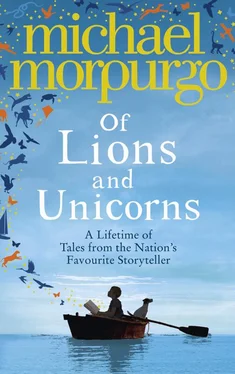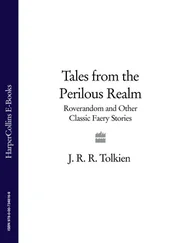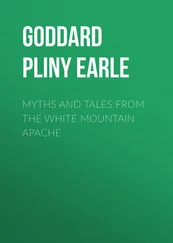I was there in the morning two days later when the fog began at last to lift and the pale sun to come through. The island was there again. I turned my binoculars at once on the nest. It was deserted. They were gone. I scanned the loch, still mist-covered in places. Not a ripple. Nothing.
Then out of nothing they appeared, my silver swan, her cob and four cygnets, coming straight towards me. As they came towards the shore they turned and sailed right past me. I swear she was showing them to me, parading them. They both swam with such easy power, the cygnets bobbing along in their wake. But I had counted wrong. There was another one, hitching a ride in amongst his mother’s folded wings. A snug little swan, I thought, littler than the others perhaps. A lucky little swan.
That night the wind came in from the north and the loch froze over. It stayed frozen. I wondered how they would manage. But I need not have worried. They swam about, keeping a pool of water near the island clear of ice. They had enough to eat, enough to drink. They would be fine. And every day the cygnets were growing. It was clear now that one of them was indeed much smaller, much weaker. But he was keeping up. He was coping. All was well.
Then, silently, as I slept one night, it snowed outside. It snowed on the farm, on the trees, on the frozen loch. I took bread crusts with me the next morning, just in case, and hurried down to the loch. As I came out of the woods I saw the fox’s paw prints in the snow. They were leading down towards the loch.
I was running, stumbling through the drifts, dreading all along what I might find.
The fox was stalking around the nest. My silver swan was standing her ground over her young, neck lowered in attack, her wings beating the air frantically, furiously. I shouted. I screamed. But I was too late and too far away to help.
Quick as a flash the fox darted in, had her by the wing and was dragging her away. I ran out on to the ice. I felt it crack and give suddenly beneath me. I was knee-deep in the loch then, still screaming; but the fox would not be put off. I could see the blood, red, bright red, on the snow. The five cygnets were scattering in their terror. My silver swan was still fighting. But she was losing, and there was nothing I could do.
I heard the sudden singing of wings above me. The cob! The cob flying in, diving to attack. The fox took one look upwards, released her victim, and scampered off over the ice, chased all the way by the cob.
For some moments I thought my silver swan was dead. She lay so still on the snow. But then she was on her feet and limping back to her island, one wing flapping feebly, the other trailing, covered in blood and useless. She was gathering her cygnets about her. They were all there. She was enfolding them, loving them, when the cob came flying back to her, landing awkwardly on the ice.
He stood over her all that day and would not leave her side. He knew she was dying. So, by then, did I. I had nothing but revenge and murder in my heart. Time and again, as I sat there at the lochside, I thought of taking my father’s gun and going into the woods to hunt down the killer fox. But then I would think of her cubs and would know that she was only doing what a mother fox had to do.
For days I kept my cold sad vigil by the loch. The cob was sheltering the cygnets now, my silver swan sleeping near by, her head tucked under her wing. She scarcely ever moved.
I wasn’t there, but I knew the precise moment she died. I knew it because she sang it. It’s quite true what they say about swans singing only when they die. I was at home. I had been sent out to fetch logs for the fire before I went up to bed. The world about me was crisp and bright under the moon. The song was clearer and sweeter than any human voice, than any birdsong, I had ever heard before. So sang my silver swan and died.
I expected to see her lying dead on the island the next morning. But she was not there. The cob was sitting still as a statue on his nest, his five cygnets around him.
I went looking for her. I picked up the trail of feathers and blood at the lochside, and followed where I knew it must lead, up through the woods. I approached silently. The fox cubs were frolicking fat and furry in the sunshine, their mother close by intent on her grooming. There was a terrible wreath of white feathers near by, and telltale feathers too on her snout. She was trying to shake them off. How I hated her.
I ran at her. I picked up stones. I hurled them. I screamed at her. The foxes vanished into the undergrowth and left me alone in the woods. I picked up a silver feather, and cried tears of such raw grief, such fierce anger.
Spring came at long last the next day, and melted the ice. The cob and his five cygnets were safe. After that I came less and less to the loch. It wasn’t quite the same without my silver swan. I went there only now and again, just to see how he was doing, how they were all doing.
At first, to my great relief, it seemed as if he was managing well enough on his own. Then one day I noticed there were only four cygnets swimming alongside him, the four bigger ones. I don’t know what happened to the smaller one. He just wasn’t there. Not so lucky, after all.
The cob would sometimes bring his cygnets to the lochside to see me. I would feed them when he came, but then after a while he just stopped coming.
The weeks passed and the months passed, and the cygnets grew and flew. The cob scarcely left his island now. He stayed on the very spot I had last seen my silver swan. He did not swim; he did not feed; he did not preen himself. Day by day it became clearer that he was pining for her, dying for her.
Now my vigil at the lochside was almost constant again. I had to be with him; I had to see him through. It was what my silver swan would have wanted, I thought.
So I was there when it happened. A swan flew in from nowhere one day, down on to the glassy stillness of the loch. She landed right in front of him. He walked down into the loch, settled into the water and swam out to meet her. I watched them look each other over for just a few minutes. When they drank, they dipped their necks together, as one. When they flew, their wings beat together, as one.
Five years on and they’re still together. Five years on and I still have the feather from my silver swan. I take it with me wherever I go. I always will.

Open one eye.
Same old basket, same old kitchen.
Another day.
Ear’s itching.
Have a good scratch.
Lovely.
Have a good stretch.
Here comes Lula.
“Morning, Russ,” she says.
“Do you know what day it is today?”
Silly question! Course I do!
It’s the day after yesterday
and the day before tomorrow.
Out I go. Smarty’s barking his ‘good morning’ at me from across the valley.
Good old Smarty. Best friend I’ve got, except Lula of course.
I bark mine back.
I can’t hang about. Got to get the cows in.
There they are.
Lula’s dad likes me to
have them ready for milking
by the time he gets there.
Better watch that one with the new calf.
She’s a bit skippy.
Lie down, nose in the grass.
Give her the hard eye.
There she goes, in amongst the rest.
And here comes Lula’s dad singing his way down to the dairy.
“Good dog,” he says.
I wag my tail. He likes that.
He gives me another ‘good dog’.
I get my milk. Lovely.
Off back up to the house.
Well, I don’t want to miss my breakfast, do I?
Lula’s already scoffing her bacon and eggs.
Читать дальше













